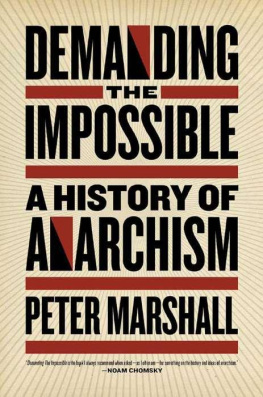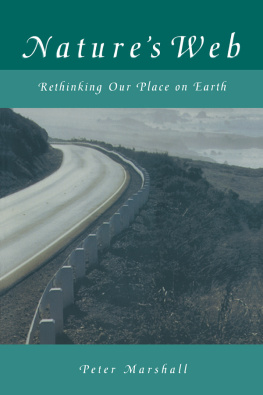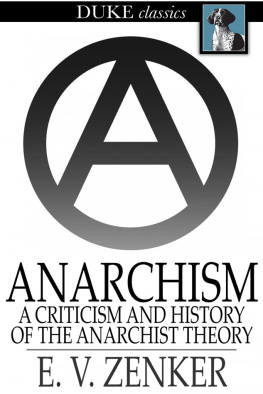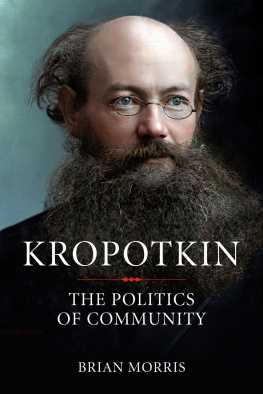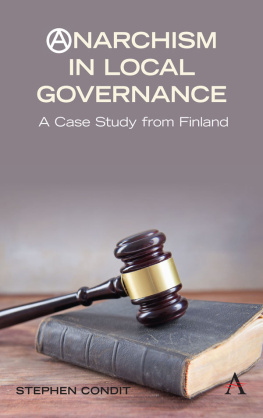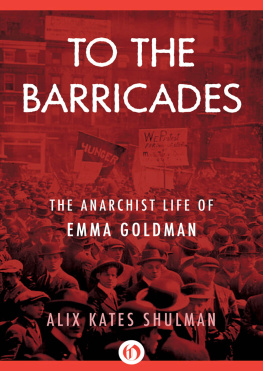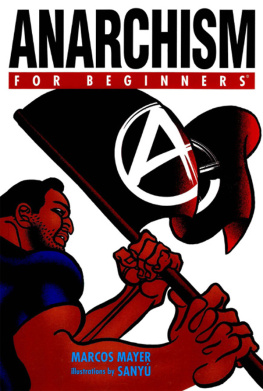For Dylan and Emily
Demanding The Impossible: A History Of Anarchism
Peter Marshall
ISBN: 978-1-60486-064-1
Library Of Congress Control Number: 2009901374
Copyright Peter Marshall 1992, 1993, 2008
This edition copyright 2010 PM Press
All Rights Reserved
PM Press
PO Box 23912
Oakland, CA 94623
www.pmpress.org
Cover design by John Yates/Stealworks
Printed in the USA on recycled paper.
P ETER M ARSHALL is a philosopher, historian, biographer and travel writer. He has written fifteen highly acclaimed books which are being translated into fourteen different languages. They include William Godwin, Natures Web, Riding the Wind, The Philosophers Stone and Europes Lost Civilization. His circumnavigation of Africa was made into a TV series. His website is www.petermarshall.net
From the reviews of Demanding the Impossible:
Large, labyrinthine, tentative: for me these are all adjectives of praise when applied to works of history, and Demanding the Impossible meets all of them.
G EORGE W OODCOCK , Independent
I trust that Marshalls survey of the whole heart-warming, head-challenging subject will have a large circulation It is a handbook of real history, which should make it more valuable in the long run than all the mighty textbooks on market economics and such-like ephemeral topics.
M ICHAEL F OOT , Evening Standard
Infectious in its enthusiasm, attractive to read There is more information about anarchism in this than in any other single volume.
N ICOLAS W ALTER , London Review of Books
Immense in its scope and meticulous in its detail It covers every conceivable strand in the libertarian little black book.
A RTHUR N ESLEN , City Limits
A wide-ranging and warm-hearted survey of anarchist ideas and movements that avoids the touchy sectarianism that often weakens the anarchist position.
J AMES J OLL , Times Literary Supplement
Theres no mistaking the fact that Demanding the Impossible is timely a gigantic mural in which every celebrated figure who has ever felt hemmed in by law and government finds a place.
K ENNETH M INOGUE , Sunday Telegraph
Peter Marshall, clearly a convinced impossibilist, has set himself a sisyphean task. His book is a kind of model of what it talks about a sphere of near-structureless co-existence, a commune or phalanstery for all the friends of libertarianism from Wat Tyler to Walt Whitman to Tristan Tzara.
L ORNA S AGE , Independent on Sunday
Peter Marshalls massive but very readable survey deserves a wide readership.
A NTHONY A RBLASTER , Tribune
The most compendious, most studied and most enlightening read of anarchist history.
A NDREW D OBSON , Anarchist Studies
Excellent a lively and heartening study.
R ONALD S HEEHAN , The Irish Press
Reading about anarchism is stimulating, funny and sad. What more can you ask of a book?
I SABEL C OLEGATE , The Times
Interest in anarchy was reawakened by the publication of Peter Marshalls massively comprehensive Demanding the Impossible.
P ETER B EAUMONT , Observer
BY THE SAME AUTHOR
William Godwin
Journey through Tanzania
Into Cuba
Cuba Libre: Breaking the Chains?
William Blake: Visionary Anarchist
Journey through Maldives
Natures Web: An Exploration of Ecological Thinking
Around Africa: From the Pillars of Hercules to the Strait of Gibraltar
Celtic Gold: A Voyage around Ireland
Riding the Wind: A New Philosophy for a New Era
The Philosophers Stone: A Quest for the Secrets of Alchemy
World Astrology: The Astrologers Quest to Understand the Human Character
Europes Lost Civilization: Uncovering the Mysteries of the Megaliths
The Theatre of the World: Alchemy, Astrology and Magic in
Renaissance Prague
CONTENTS
ACKNOWLEDGEMENTS
I would like to thank Heiner Becker, John Clark, John Crump, Caroline Cahm, David Goodway, Carl Levy, Geoffrey Ostergaard, Hans Ramaer, and Vernon Richards for commenting on different chapters of this work. Tom Cahill and Graham Kelsey kindly provided me with materials. I am indebted to John Burrow for encouraging, many years ago, my interest in the history of anarchist ideas. I much appreciate the pioneering work in the history of anarchism undertaken by Paul Avrich, Daniel Gurin, James Joll, Jean Maitron, Max Nettlau and George Woodcock, although I do not always share their emphases or interpretations. In preparing the book for publication, the editorial advice of Philip Gwyn Jones has proved unfailingly perceptive and relevant.
My thanks are due to the staff of both the National Library of Wales and the British Library, and to the librarians of Coleg Harlech, the University College of North Wales, and the University of London for facilitating my research.
My children Dylan and Emily have been bemused by my work on something impossibly called anarchism, but have been an inspiring example of constructive anarchy in action. I am grateful to my mother Vera for first awakening in me a sense of justice and equality. My brother Michael has given his warm support at all times. Above all, I must thank Jenny Zobel for her constant help and encouragement during the composition of this long study; only she knows the depth of my indebtedness. My friends Richard Feesey, Jeremy Gane, Graham Hancock, David Lea, and John Schlapobersky have in their different ways all inspired me to complete my task.
For this new edition, I have added an epilogue bringing anarchism up to date in the twenty-first century and given my own suggestions on the way forward.
I would like to thank John Clark in particular for his very perceptive and detailed comments. Ruth Kinna helped me with some materials. Elizabeth Ashton Hill kindly read the epilogue. My thanks also to Rosalind Porter and Essie Cousins at Harper Perennial and Ramsey Kanaan at PM Press who have brought out this new edition.
I welcome any readers comments on my website:
www.petermarshall.net
P ETER M ARSHALL , Little Oaks, July 2007
INTRODUCTION
A NARCHY IS TERROR , the creed of bomb-throwing desperadoes wishing to pull down civilization. Anarchy is chaos, when law and order collapse and the destructive passions of man run riot. Anarchy is nihilism, the abandonment of all moral values and the twilight of reason. This is the spectre of anarchy that haunts the judges bench and the government cabinet. In the popular imagination, in our everyday language, anarchy is associated with destruction and disobedience but also with relaxation and freedom. The anarchist finds good company, it seems, with the vandal, iconoclast, savage, brute, ruffian, hornet, viper, ogre, ghoul, wild beast, fiend, harpy and siren. He has been immortalized for posterity in Joseph Conrads novel The Secret Agent (1907) as a fanatic intent on bringing down governments and civilized society.
Not surprisingly, anarchism has had a bad press. It is usual to dismiss its ideal of pure liberty at best as utopian, at worst, as a dangerous chimera. Anarchists are dismissed as subversive madmen, inflexible extremists, dangerous terrorists on the one hand, or as naive dreamers and gentle saints on the other. President Theodore Roosevelt declared at the end of the nineteenth century: Anarchism is a crime against the whole human race and all mankind should band against anarchists.

